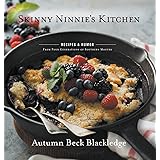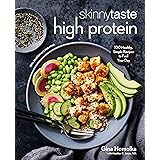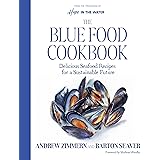The global plant-based food market is experiencing unprecedented growth, projected to reach an astounding $162 billion by 2030, according to Bloomberg Intelligence. This significant expansion reflects a widespread consumer shift towards more ethical, sustainable, and health-conscious dietary choices. However, as the accompanying video insightfully reveals, navigating this burgeoning market requires a discerning eye, as many seemingly vegan brands are actually subsidiaries of large corporate entities deeply invested in conventional meat and dairy industries. Understanding these intricate corporate structures is paramount for the conscious consumer seeking to align their purchasing power with their core ethical convictions.
The phenomenon of established food conglomerates acquiring smaller, innovative plant-based brands is not merely a coincidence; it represents a calculated strategic manoeuvre. Large corporations, facing declining demand for traditional animal products in certain segments, recognize the immense potential and profitability within the vegan sector. By absorbing successful plant-based companies, these giants effectively diversify their brand portfolios, mitigate risk, and secure a foothold in an expanding market. This vertical integration strategy allows them to capitalize on the plant-based trend while simultaneously maintaining their dominant positions within the animal agriculture supply chain, posing a complex dilemma for dedicated ethical consumers.
The Danone Dilemma: A Dairy Titan’s Plant-Based Portfolio
One of the most striking examples highlighted in the video involves Danone, a French multinational that commands a staggering 25% share of the global dairy industry. Danone’s acquisition of Whitewave Foods in 2016 for an estimated £12.5 billion brought prominent plant-based brands like Alpro and Provamel under its expansive corporate umbrella. These brands, renowned for their accessible range of plant-based milks, yogurts, and creams, are ubiquitous in supermarkets and coffee shops across the UK and Europe. Consequently, every purchase of an Alpro or Provamel product, while contributing to the plant-based economy, also indirectly funnels capital into a corporation with extensive conventional dairy operations.
The ethical implications of this ownership structure extend beyond the mere act of purchasing. Danone’s vast dairy empire necessitates the continuous operation of large-scale animal agriculture, contributing significantly to greenhouse gas emissions and animal welfare concerns. Furthermore, Danone has faced criticism, including boycott calls, for its aggressive marketing of baby milk formula in developing countries, raising additional ethical questions about its corporate practices. Imagine if a health-conscious consumer meticulously selects plant-based options, genuinely believing their choices exclusively support a cruelty-free economy, unaware that their purchases contribute to a corporate giant simultaneously expanding its conventional dairy footprint.
Spreading the Web: Other Non-Vegan Parent Companies
The narrative of corporate ownership extends to other familiar vegan brands, painting a broader picture of market consolidation. The video reveals that popular vegan butter and margarine brands, Pure and Vitalite, are also owned by conventional food industry players. Pure, a staple for many plant-based households, falls under the ownership of Kerry Group, a company deeply involved in dairy, owning brands such as Dairygold and Cheese-string. This highlights the intricate web of ownership where seemingly distinct brands are interconnected through parent corporations with diverse, often conflicting, product lines.
Similarly, Vitalite is owned by Saputo Dairy, a Canadian multinational dairy company producing household names like Cathedral City cheese, Clover, and Utterly Butterly. Saputo’s influence in the plant-based sector is particularly pervasive, as they not only own Sheese vegan cheese but also manufacture the majority of own-brand vegan cheeses for major UK supermarkets, including Morrisons, Tesco, Sainsbury’s, and Waitrose. This extensive reach means that even consumers opting for supermarket own-brand vegan alternatives may still be indirectly supporting a major dairy conglomerate. Consider the loyal consumer, dedicated to a brand synonymous with ethical sourcing for decades, only to discover its profits indirectly bolster industries they actively oppose.
Linda McCartney: A Legacy Reimagined Under Hain Celestial
The Linda McCartney Foods brand holds a special place in the hearts of many vegetarians and vegans, having been a pioneering force in plant-based convenience foods for over 15 years. Its legacy is deeply intertwined with a commitment to compassionate living. However, the brand is currently owned by Hain Celestial, a company that, despite its focus on natural and organic products, also sells poultry products in the US. Furthermore, Hain Celestial owns Ella’s Kitchen baby food, much of which incorporates meat ingredients, presenting another layer of complexity for the ethically-minded shopper.
The acquisition of such an iconic vegetarian brand by a corporation with interests in animal agriculture represents a significant shift. For consumers who have grown up with Linda McCartney products, associating them with pioneering vegetarianism, this revelation can be particularly disheartening. It underscores the challenge of maintaining brand purity and alignment with original values once a company is integrated into a larger, more diversified corporate entity. The emotional connection consumers forge with brands often masks the underlying corporate structures that dictate their ownership and ultimate beneficiaries.
Navigating the Ethical Maze: The Nuances of Consumer Choice
Understanding that many prominent vegan brands are owned by meat and dairy companies introduces a complex dilemma for consumers. On one hand, the involvement of large corporations has undoubtedly accelerated the mainstream availability and innovation within the plant-based market. Their vast distribution networks and marketing budgets mean vegan products are more accessible than ever, facilitating the transition for many. This increased presence can normalize plant-based eating and gradually reduce the demand for animal products overall, a significant long-term benefit for the plant-based movement.
However, the ethical concerns cannot be overlooked. For dedicated vegans, the idea of their purchases indirectly funding industries that perpetuate animal suffering and environmental degradation is profoundly problematic. This scenario raises questions about corporate accountability, transparency, and the potential for “greenwashing” or “impact washing,” where a company presents an environmentally or ethically responsible public image while simultaneously engaging in conflicting practices elsewhere in its operations. The challenge lies in distinguishing genuine commitment to plant-based ethics from strategic corporate manoeuvring designed primarily for market capture and profit diversification.
Empowering Your Plate: Seeking Truly Independent Vegan Brands
For those committed to ensuring their consumer choices align directly with their values, prioritizing truly independent ethical vegan brands becomes a crucial undertaking. This involves a deeper dive into corporate ownership structures, often requiring research beyond what is immediately visible on product packaging. Identifying brands that are exclusively focused on plant-based products and are not subsidiaries of larger meat and dairy conglomerates offers a clearer path to ethical consumption. Criteria for identifying such brands might include their explicit mission statements, B-Corp certifications indicating high standards of social and environmental performance, and their transparent sourcing practices.
Furthermore, supporting local vegan businesses and smaller, independent manufacturers can bolster a more localized and ethical food economy. These companies often operate with a stronger mission-driven approach, directly reflecting the values of the plant-based community. By consciously choosing to support these businesses, consumers can exert influence on market dynamics, encouraging more ethical business practices across the entire plant-based food industry. Remaining informed about which vegan brands are owned by meat and dairy companies is an ongoing process for the conscious consumer.











